Honey offers so many health benefits. However, if you’re like most people, you probably don’t find its sticky consistency and the mess it leaves on your measuring cups and teaspoons pleasant.
Fortunately, by turning liquid honey into powder form, all those issues magically disappear. But before you go ahead and learn how to dehydrate honey, you need to understand what it is first.
What is Dehydrated Honey?
Dehydrated honey is just like your regular honey. The only difference is that it’s in powder form.
It’s white in color. Its fine powder texture, on the other hand, is quite similar to corn flour.
If you compare it with honey in its natural form, you’ll find dehydrated honey a lot more versatile. Plus, without the moisture, it’s easier to use in the kitchen.
It dissolves easily and nicely. Plus, it’s able to add the flavor of honey without that stickiness.
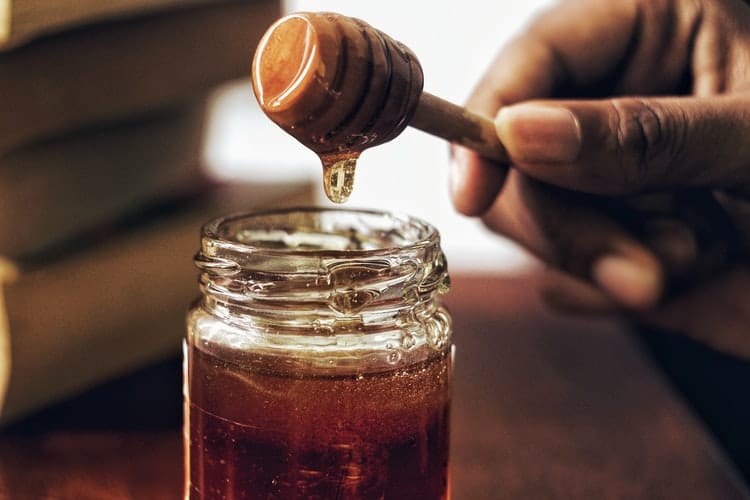
Reasons to Dehydrate Honey
Honey is already good as it is. So why learn how to dehydrate honey?
Better shelf life
Preservation is one of the most common reasons why people want to turn honey into its powder form.
Although it’s true that honey doesn’t spoil easily, it can crystallize and turn into gummy sugar when you open its container. Once that happens, you’ll find your honey quite inconvenient to use.
By dehydrating honey, you’re taking out the moisture and that helps prevent crystallization.
Prevents bacteria
For bacteria to thrive, they need moisture. Be removing it from your honey, you’re making it safer to consume.
What about canning and freezing?
These two preservation methods do a great job in making your honey last long. However, they aren’t great when it comes to retaining honey’s unique flavor.
Keeps the flavor
Honey naturally has yeast which helps ferment it over time. The process leaves the honey with a funny taste.
Although fermentation doesn’t make the honey dangerous to consume, it can affect the flavor.
How to Dehydrate Honey
You always have the option to buy dehydrated honey from your local store. However, if you want to be sure of its quality, you can make your own at home.
Now, there are two ways you can do make dehydrated honey:
1. With a food dehydrator
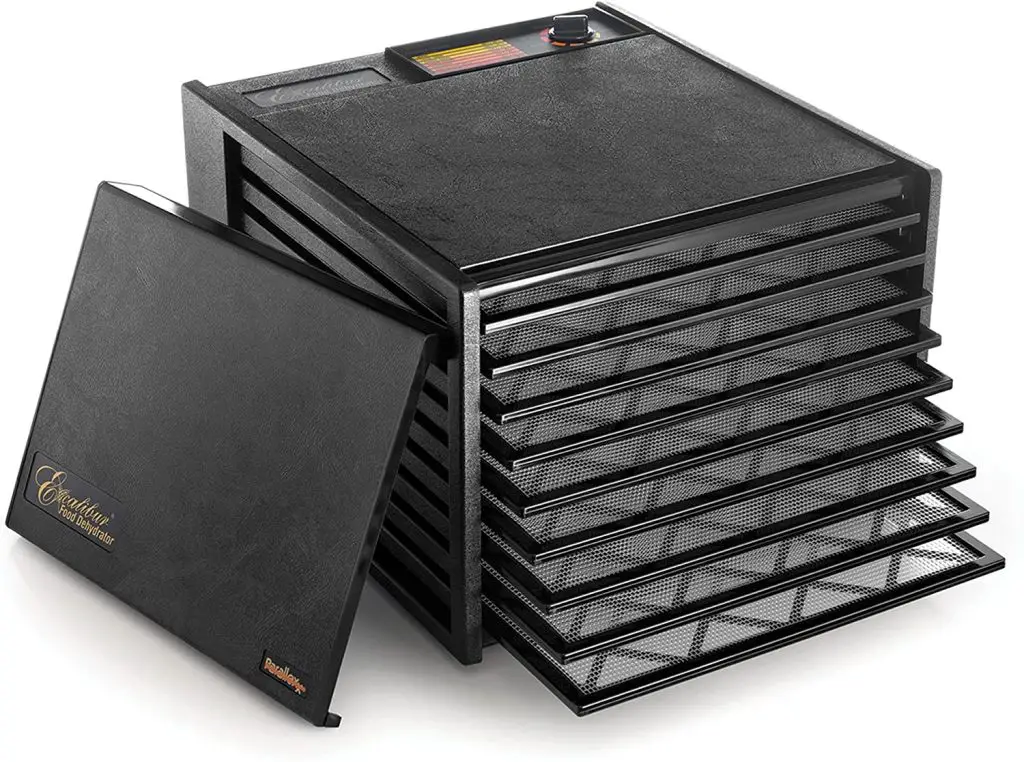
A dehydrator is a device that’s designed to remove excess water from honey. It does the job through the process of evaporation.
Inside, heated air is supplied. This allows a microclimate to be maintained. The condition promotes the evaporation of water from the liquid honey.
The device also comes with rotating plates. They play a huge part in making the drying process faster.
If you have a food dehydrator, the first thing you need to do is get a baking sheet. Coat it with parchment paper before pouring a thin layer of honey. You need to make it thin to allow moisture to escape easily.
Try to keep the thickness to around 1/8 inches. To add more flavor, you can sprinkle ground ginger or ground cinnamon.
Set the dehydrator at 120 degrees Fahrenheit.
Don’t set it at a higher temperature. Do otherwise and your honey will burn.
Try to leave your honey for as long as 24 hours. However, if you see that it’s already hard and dry, you can remove it ahead of time.
Once you’ve taken it out of the dehydrator, you can start processing it in any form you like. Just make sure not to wait too long after removing the honey. If you do, it’ll just absorb the moisture in the air and that will leave your honey viscous again.
If you are having a hard time lifting it off, you can use a spatula to carefully scrape the dry honey. Once you get everything off, you can work on breaking the pieces into smaller shards and processing the pieces using your food processor.
When you’re in the drying and grinding process, it’s a good idea to assess the environment. If the humidity is high, run your dehumidifier or air conditioner.
Why?
Well, honey is capable of absorbing moisture from the air. It can do that in a matter of minutes after you’ve taken it out of your dehydrator.
Once it has absorbed moisture, it’ll turn sticky and that’s not something you’d want.
2. Without dehydrator
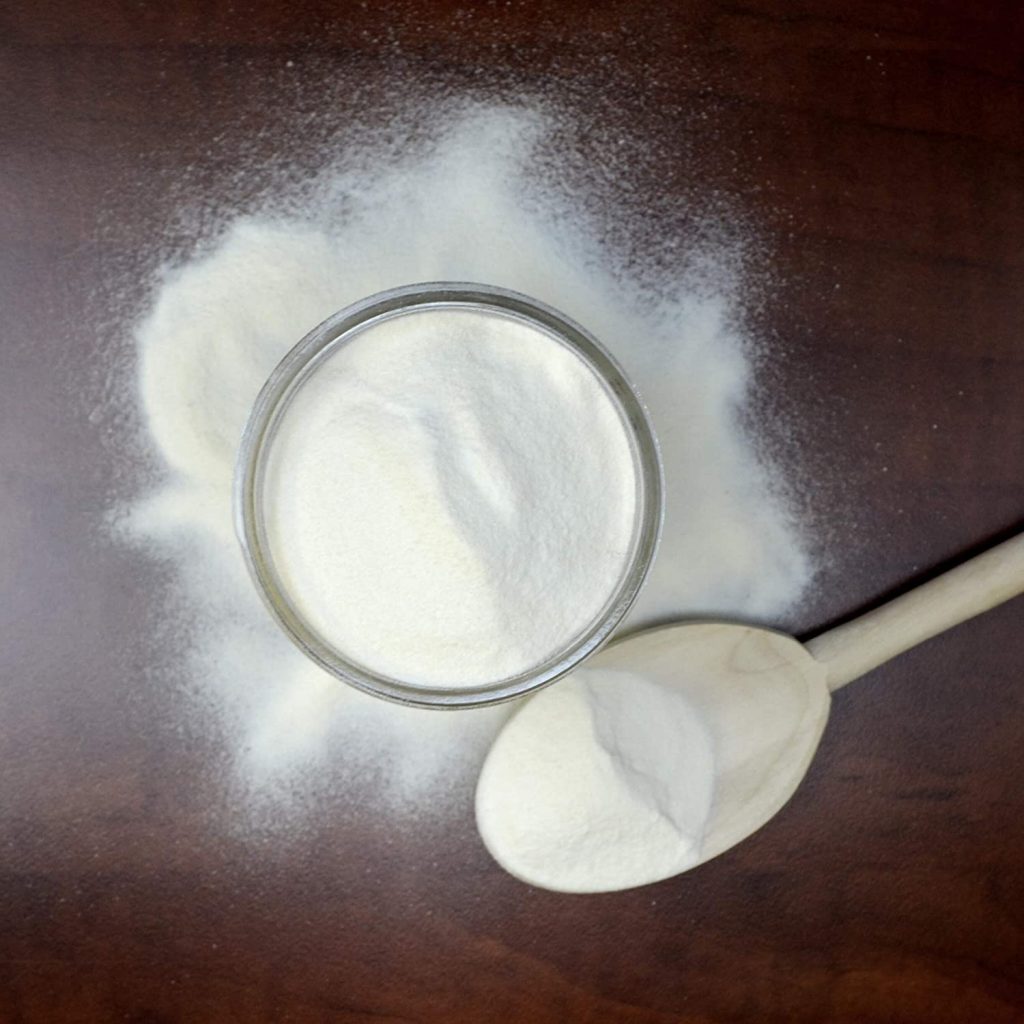
Yes, it’s possible.
Even if you don’t have a dehydrator, you can still make dehydrated honey. However, you have to keep in mind that the heat may end up destroying some of the nutritional aspects of your honey.
To start, you’ll need to put a pot on your stove. Make sure that it’s large. There should be extra room for expansion as the honey bubbles up.
Get a candy thermometer to check its temperature. Once you’re able to get 300 degrees Fahrenheit, you’ll be able to get your honey hard enough to crack.
Remember not to overheat your honey. Remove it from the stove quickly but carefully.
Pour it on a silicone sheet lined with flat pans. Allow it to cool in a dry environment with low humidity. Once it’s cool enough, you can start crushing and grinding it to your desired consistency.
Storing Dehydrated Honey
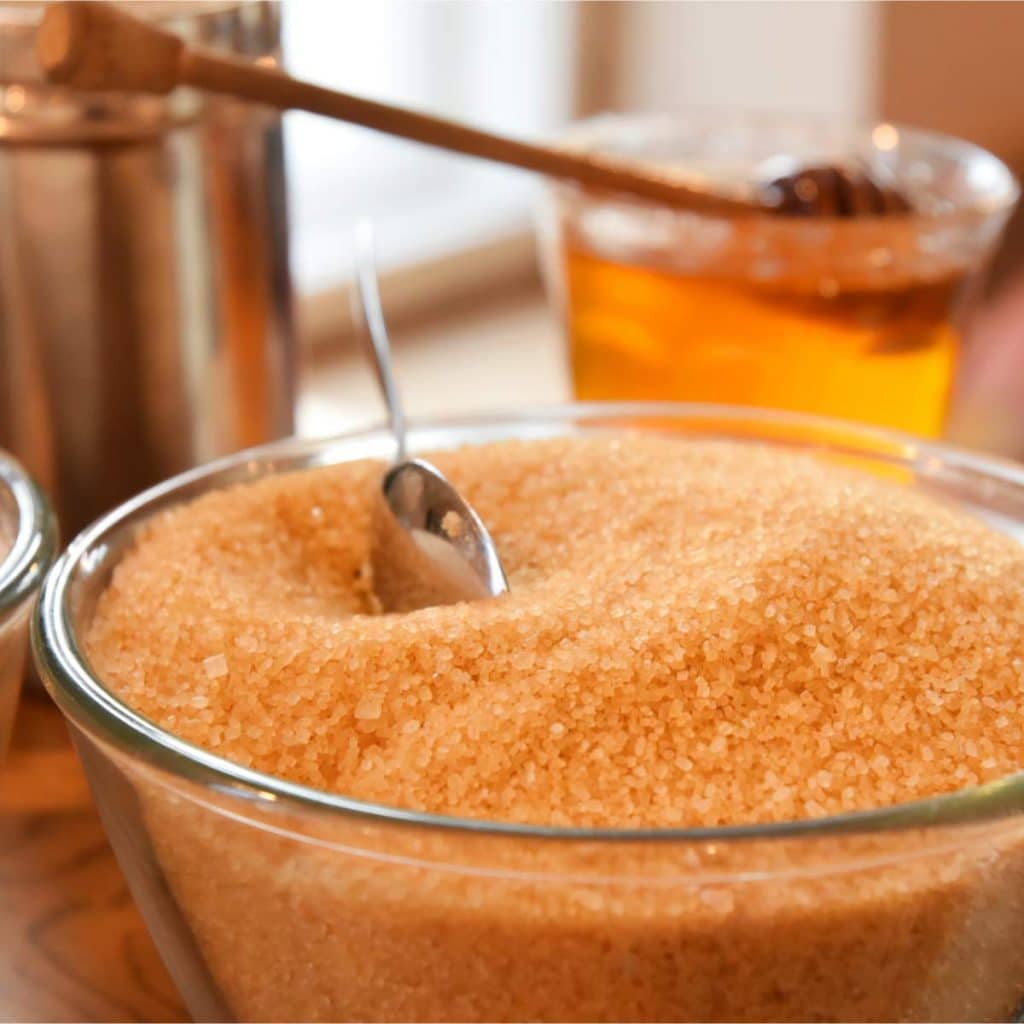
When it comes to storage, it’s best to keep it in a good airtight container. Store the honey as soon as possible and don’t open it unless you’re going to use it.
As long as you keep your dehydrated honey dry, it should be able to have a long shelf life.
Picking the Best Honey
Honestly, any variety will work if you’re planning on dehydrating honey. However, if you really want to get the best results, try to get it straight from a beekeeper.
If you can’t find one in your area, you can get your honey from your local grocery store. You just have to be extra picky when choosing which product to buy.
As much as possible, stick with thick honey. It’s better than a runny one with high water content.
Is Dehydrated Honey Good for You?
Even though it’s in a different form, it still has the benefits of your regular honey.
Now, what are those benefits?
Better digestion
Honey has anti-inflammatory and anti-bacterial compounds that work really well in treating infections throughout your body. It’s particularly effective in easing the inflammation in your stomach.
Because of those compounds, consuming dehydrated honey can also help minimize the symptoms of cramping and constipation.
Weightloss
Compared with traditional sugar, dehydrated honey has fewer carbohydrates and calories. Adding this to your diet should help kickstart your metabolism and help with weight loss.
Better skin
You can consume powdered honey by adding it to your food or you can mix it with your other skincare products.
Honey has antiseptic properties which make it effective in soothing acne-prone skin. It’s also a natural humectant. It can keep your skin moist without causing excessive oil production.
Ways to Use Dehydrated Honey
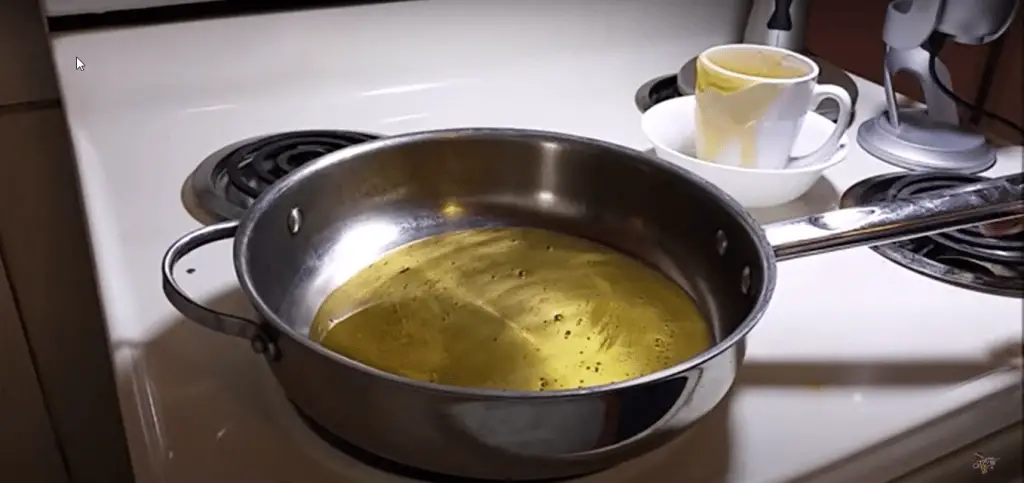
Cody’sLab
As mentioned earlier, dehydrated honey is more versatile since it’s in powder form. It has a lot of uses, particularly in cooking and baking.
As a substitute for sugar in baking
Powdered honey can work like sugar if you add it to your recipes. It acts as a natural sweetener that won’t make you feel as guilty as using table sugar.
However, you have to be extra careful when adding it to your baked products. Although it’s sweet, it won’t caramelize. It doesn’t even add chewiness when you use it in baking.
Sprinkling the fine powder into baked goods will make honey sticky since it’ll gather moisture.
As a natural sweetener
Because of its sweetness, you can use dehydrated honey to your tea, coffee, or juice. Since it’s packed with antioxidants and nutrients, it’s a much better option than other sweeteners since it’s healthier.
An extra ingredient in recipes
Thinking of making barbecue sauce? Dehydrated honey is an excellent alternative to artificial sweeteners. Plus, it has this distinct flavor that makes your dishes extra tasty.
Dehydrated honey is also excellent to use as a glaze for meats. Just sprinkle a good amount on your roasted ham or turkey before cooking.
Pros and Cons of Dehydrating Honey
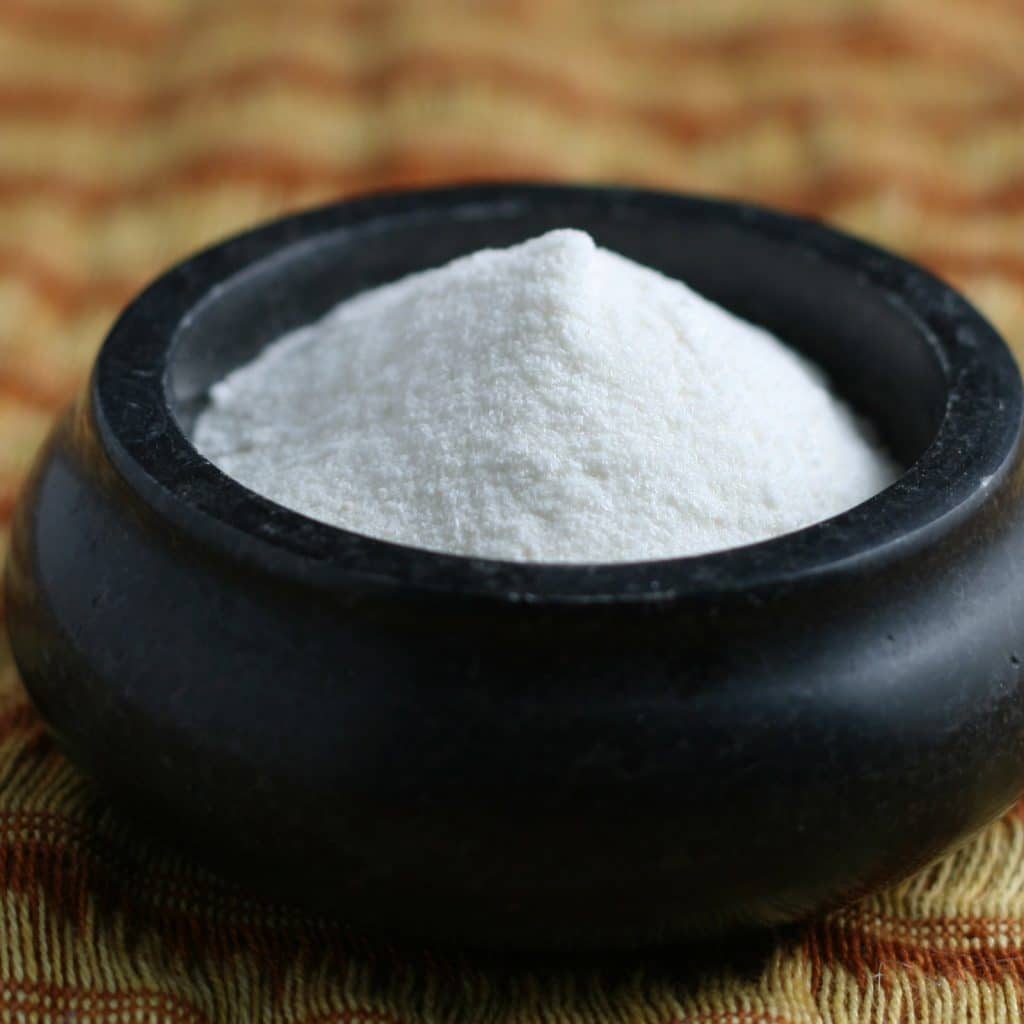
Still not sure whether to go with dehydrated honey or its natural form? The list below should be able to help you decide.
Pros
1. It’s an economical choice.
You won’t have to use a lot of it to get the sweetness you want.
2. It doesn’t crystallize.
You don’t have to worry about powdered honey turning into crystals each time you open its container. However, there is the risk of it absorbing moisture so don’t open your jar unless it’s necessary.
3. It lasts long
Your honey can last a long time if you dehydrate and store it in an airtight container.
4. It’s good for diabetics.
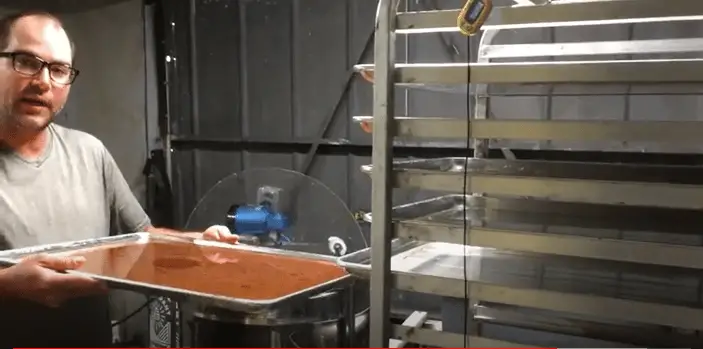
Now, take this with a grain of salt. Although dehydrated honey doesn’t contain as many carbohydrates and calories as your table sugar, it doesn’t mean that it’s the safest alternative around. It can still cause your blood sugar to spike if consumed excessively. Remember to consume in moderation.
5. It has nutrients.
If you need to choose between sugar and dehydrated honey, go with the latter. Although both of them are sweet, honey has nutrients.
6. It’s mess-free.
You won’t have to deal with any sticky mess when using it. The powder actually dissolves nicely.
7. It’s great for baking.
You can use it in baking cookies, cakes, and bread since it does a good job of eliminating moisture. You can also add it to your ice cream, cereal, or yogurt.
Cons
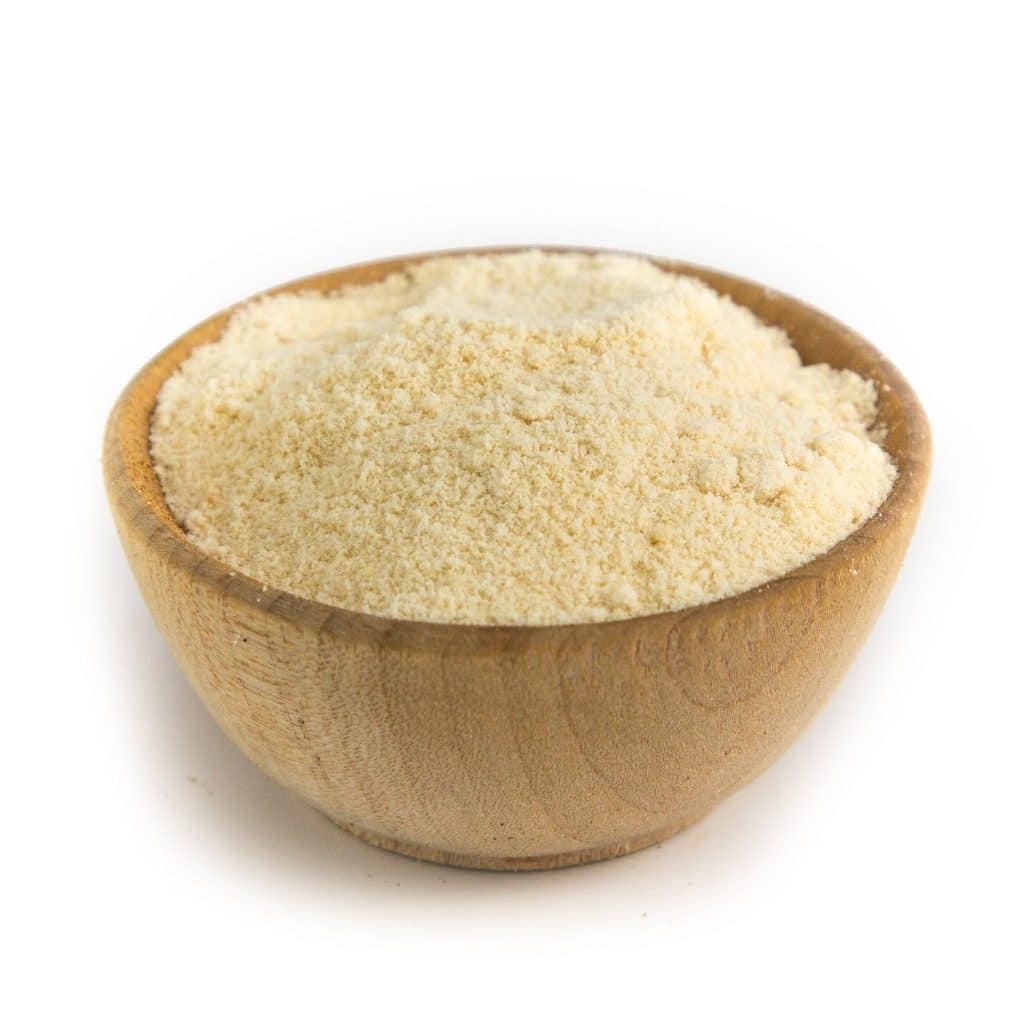
1. It doesn’t act like sugar in baked goods.
You can’t use it to add chewiness to your cookies and other baked products. It won’t even caramelize.
2. It burns easily.
Honey is quite temperature sensitive. If you aren’t careful, you can easily burn it and that can affect the color of your dishes.
3. It has stabilizers.
This is quite common among dehydrated honey products sold commercially. In fact, most of them only contain 50% honey. The other half may include sugar, processing aids, maltodextrins, high fructose corn syrup, drying agents, non-nutritive sweeteners, and bulking agents.

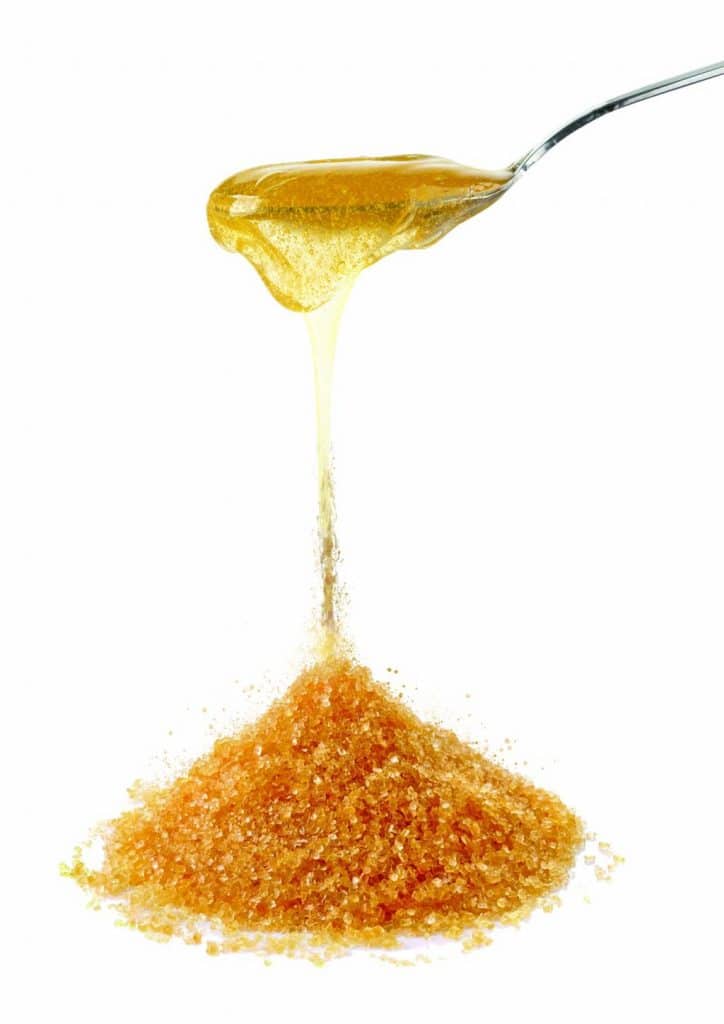
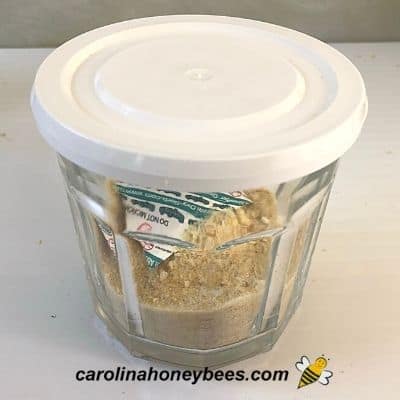
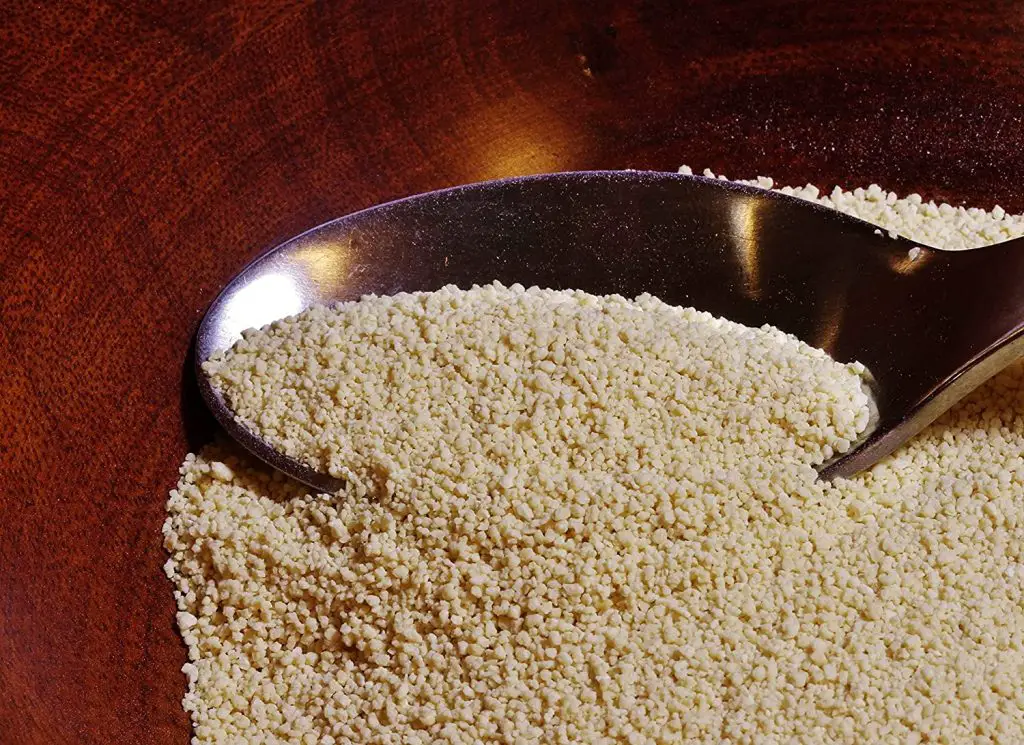
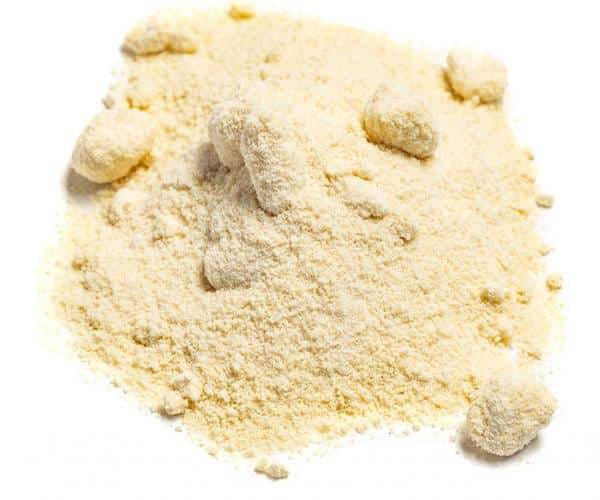
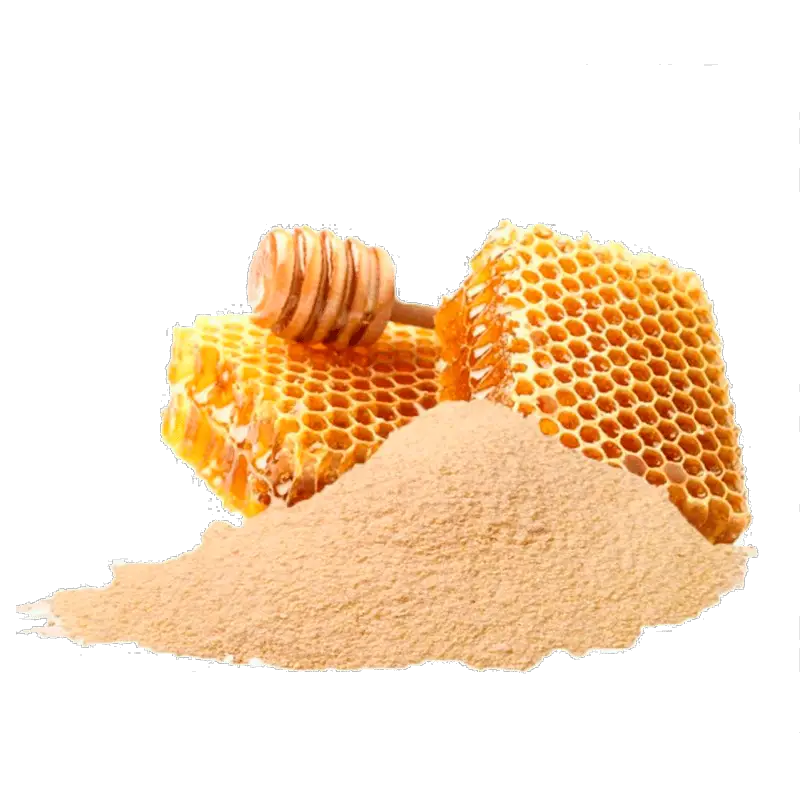

Hello! I am about to dehydrate some honey in my dehydrator (love this idea) and am wondering what you mean by a baking sheet? I have only used mine once and it was to dehydrate kale. Is there a particular thing to buy?
thank you
I’ve had mine in a dehydrator for over a week and it’s still liquid. It was placed very thin and the temperature is set properly.
What about the use of microwave ?
Hi
Thank you for the excellent article.